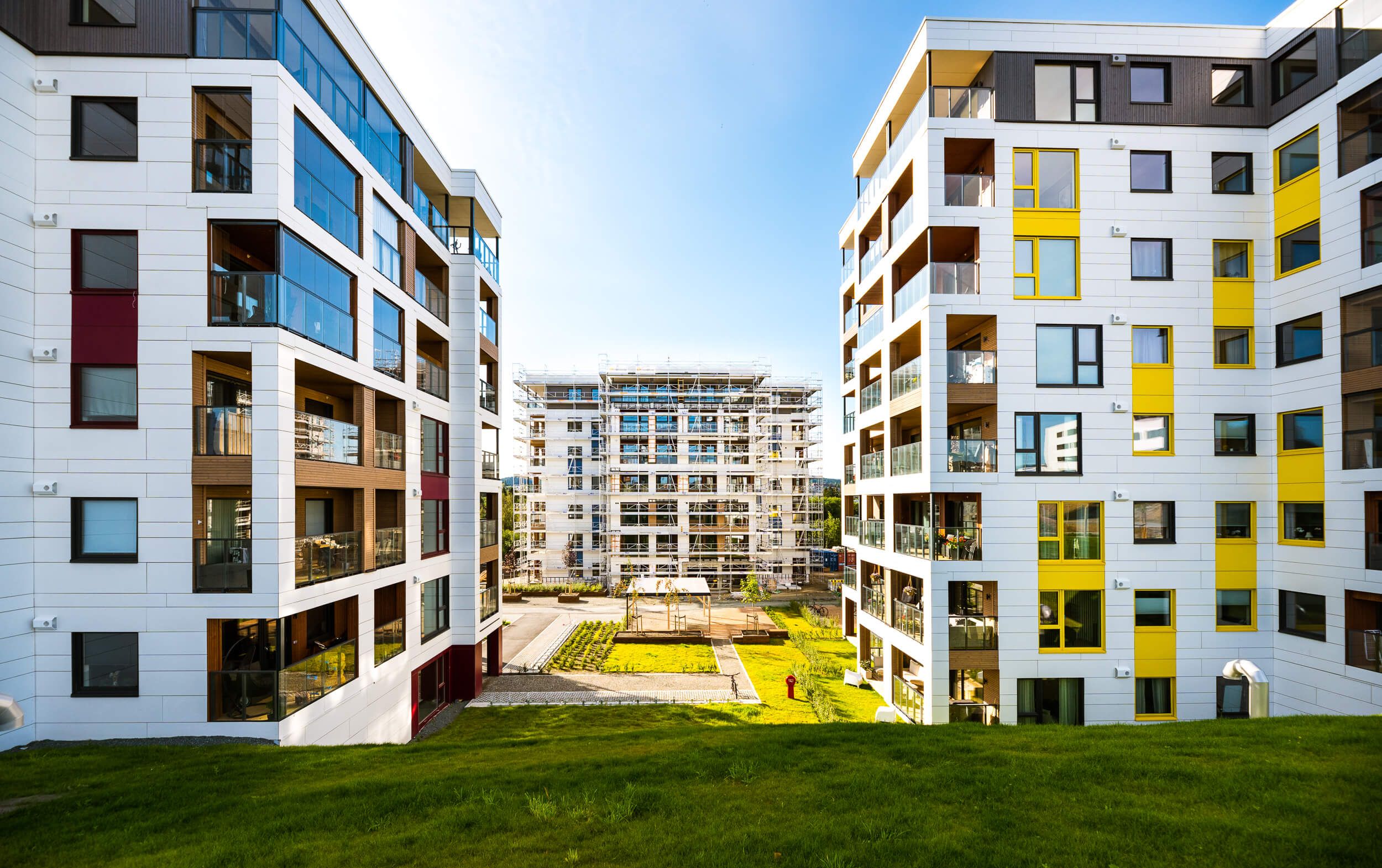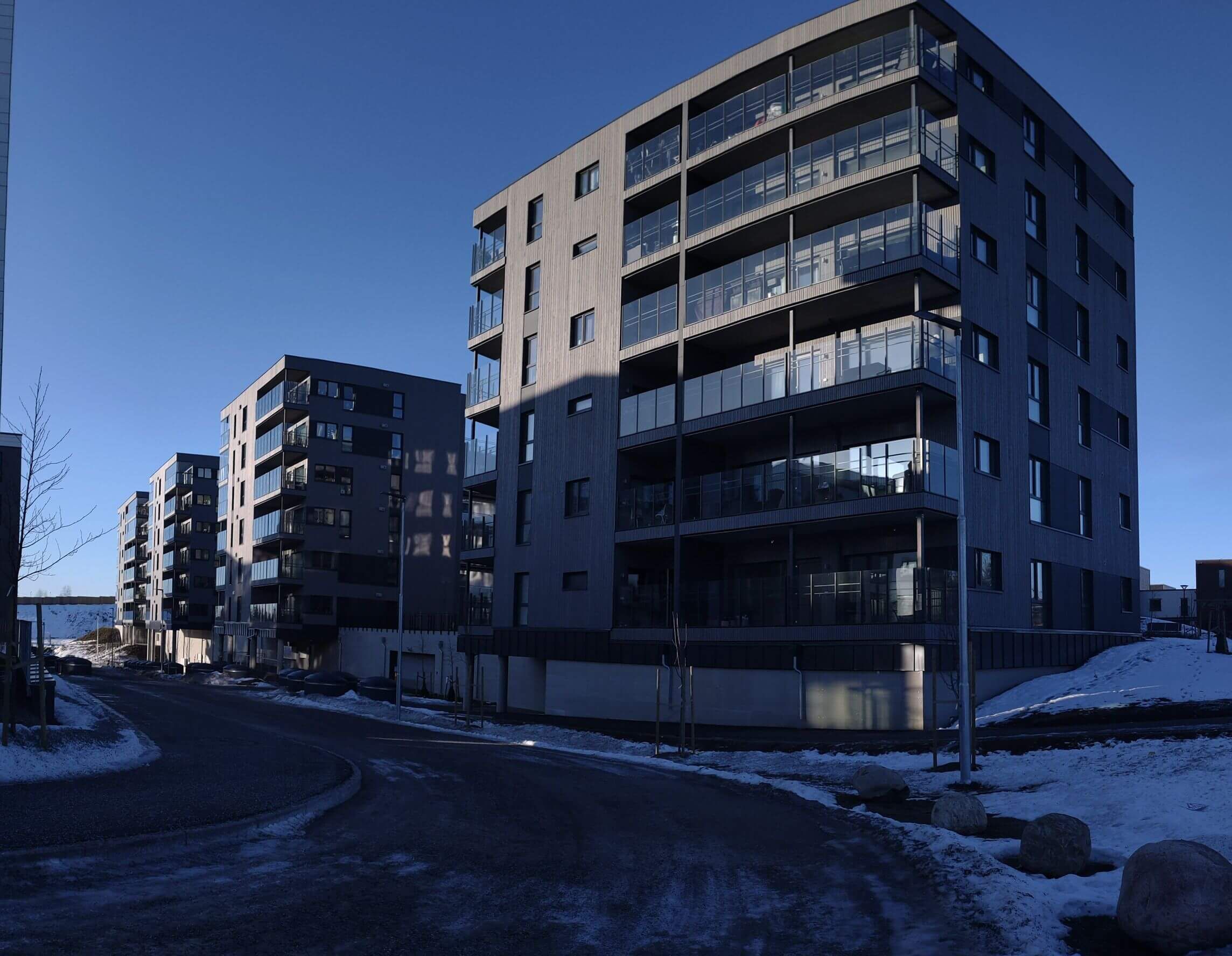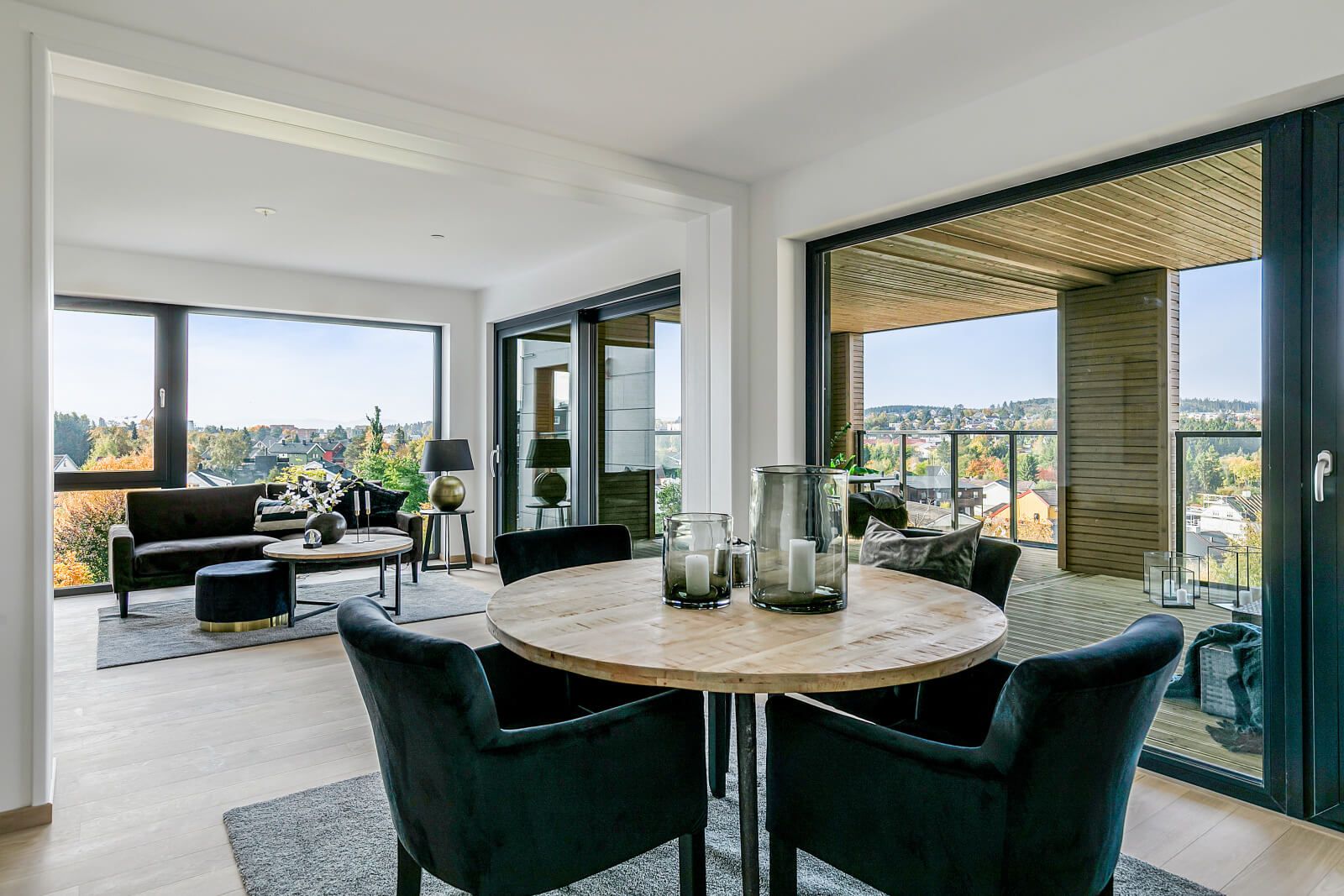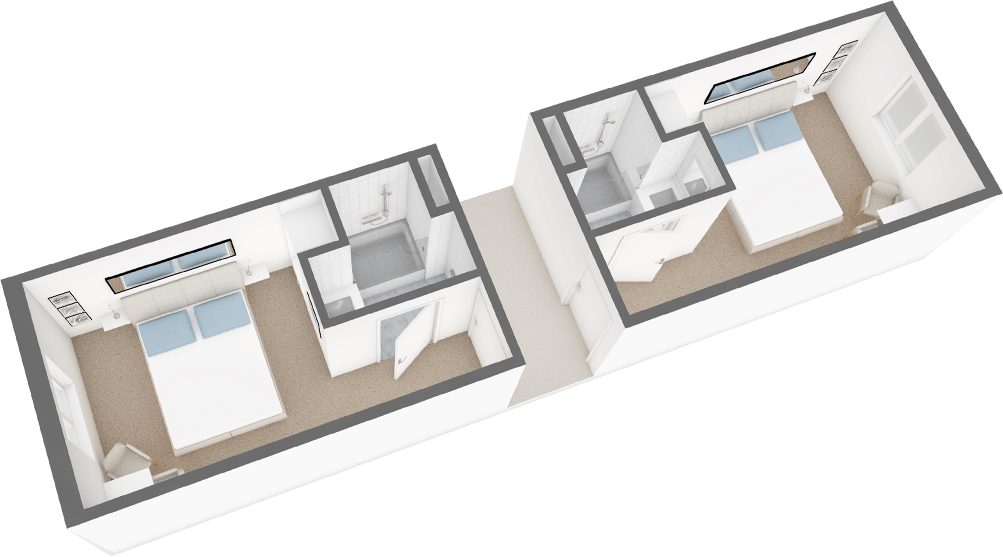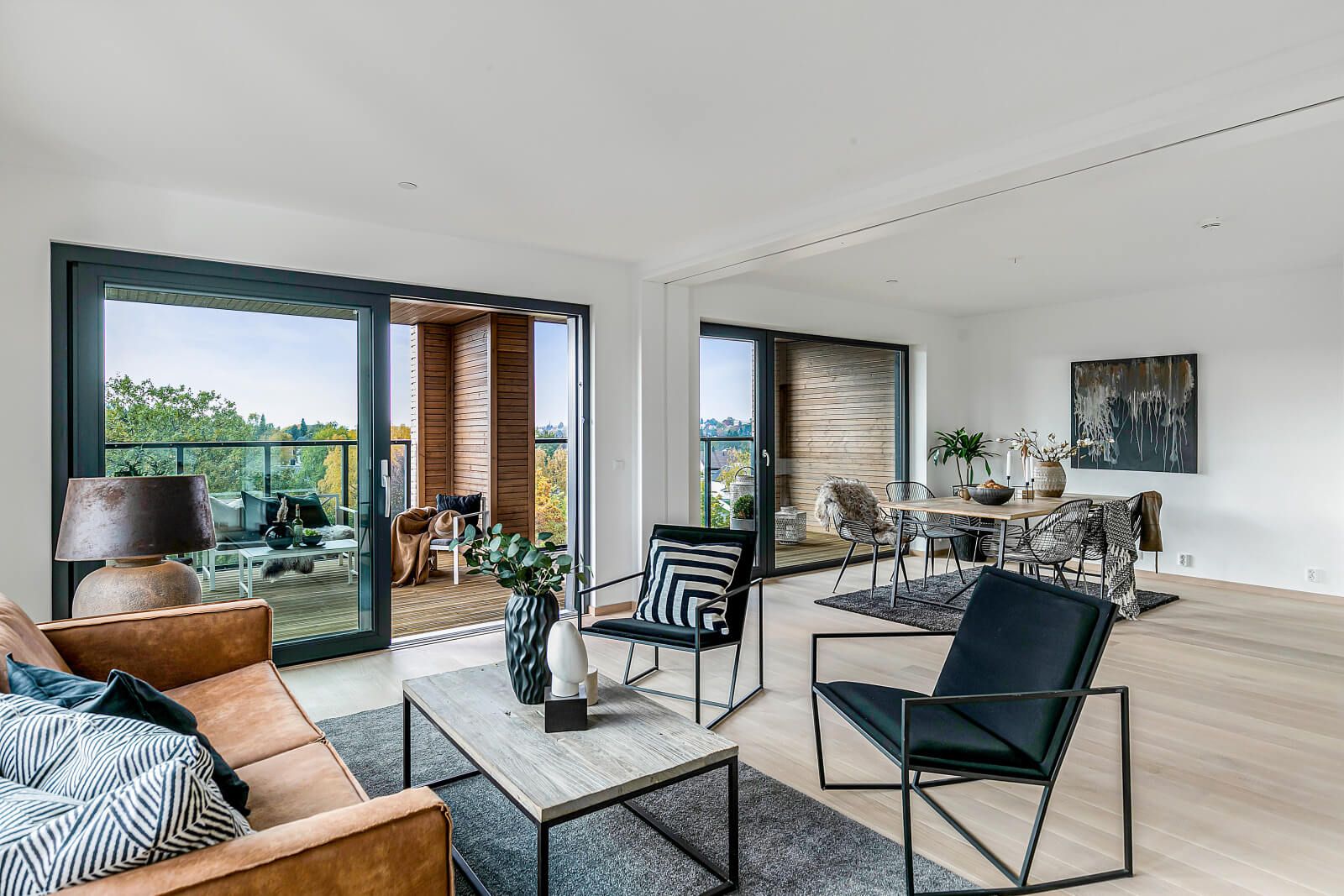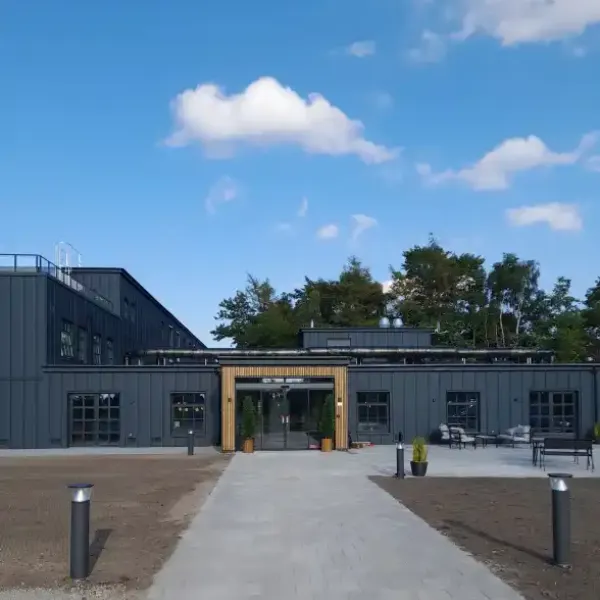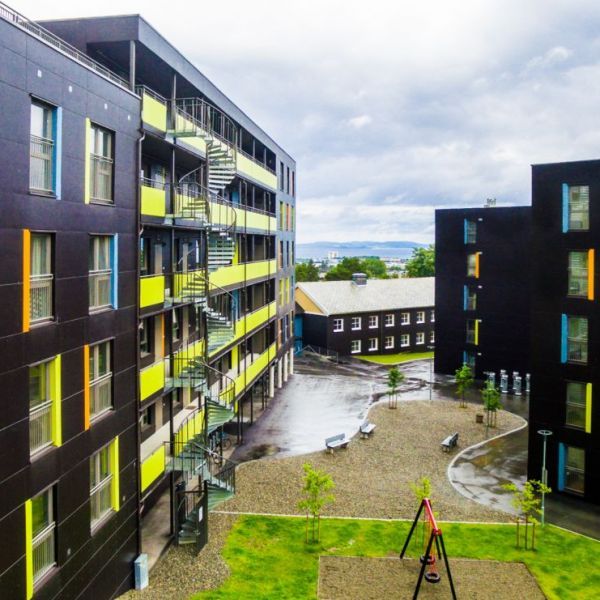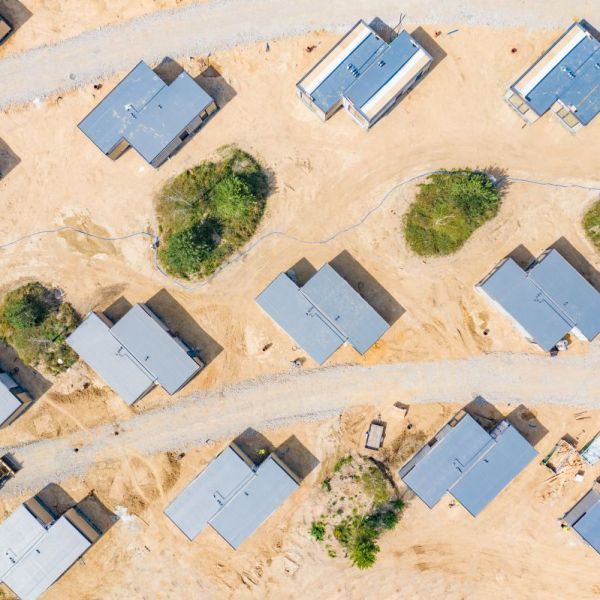Modular construction allows for the rapid construction of temporary accommodation facilities, including modular hotels and dormitories. The result is comfortable, modern and energy-efficient rooms for different numbers of people. And all thanks to the technologies used by Unihouse. Find out more about modular hotels and modular campuses.
Modular hotels - what sets them apart from traditional ones?
The hotels and dormitories created from the modules - thanks to their energy efficiency - are adapted to the new energy realities. The technologies used by Unihouse mean that electric radiators, which can be switched off when no one is in the room, are sufficient to heat individual rooms. The result? A modular hotel, like a modular dormitory or a modular housing estate, is cheaper to maintain than a facility built using traditional technology. Minimising operating costs is a key issue for any investor - this has a direct impact on the return on investment.
Although low running costs are one of the main advantages of modular construction, there are more benefits to choosing the technologies offered by Unihouse. Modular hotels can be expanded quickly. This means that the business is truly scalable - as guests arrive, additional rooms can be created. In this case, the extension does not stand out from the existing building - the whole looks aesthetically pleasing. Modular halls of residence can be extended in a similar way if the university plans to start up more courses.
Modular hotels and dormitories versus traditional construction - other differences:
- mobility - a modular hotel can be moved between different locations as a consequence of the use of lightweight modules;
- natural materials - modular campuses and modular hotels are built using environmentally friendly materials (such as wood) and, in addition, production involves low CO2 emissions;
- a favourable microclimate - this is a consequence of the use of natural materials, optimal room temperatures and efficient ventilation.
